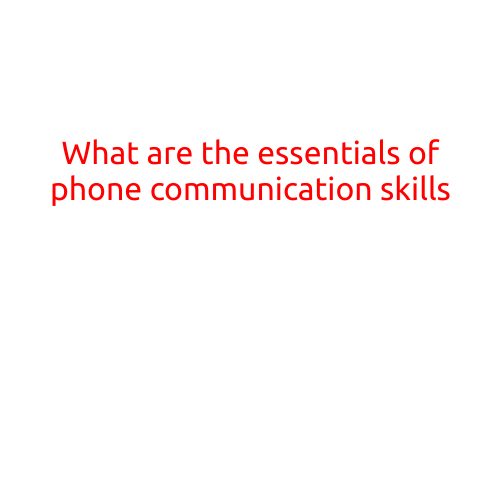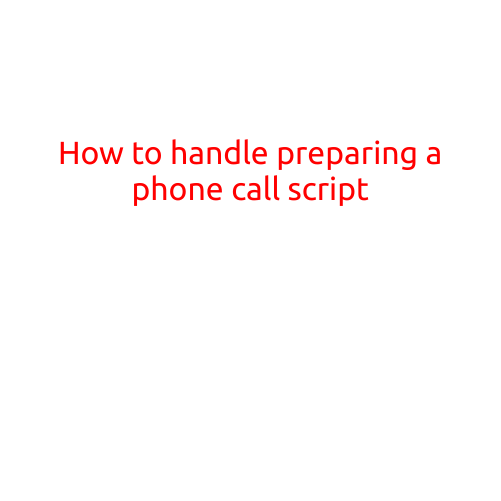
What are the Essentials of Phone Communication Skills?
In today’s digital age, phone communication has become an essential aspect of our daily lives. Whether you’re a professional, a student, or an individual, you likely use your phone to communicate with others on a regular basis. However, with the rise of text messaging, email, and social media, it’s easy to forget the importance of phone communication skills.
Good phone communication skills are crucial for building relationships, conveying messages effectively, and resolving conflicts. In this article, we’ll explore the essentials of phone communication skills and provide tips on how to improve your phone communication abilities.
Essential Phone Communication Skills
- Clarity and Conciseness: The ability to articulate your message clearly and concisely is essential for effective phone communication. Avoid using jargon or overly complex language that may confuse the listener.
- Active Listening: Active listening involves paying attention to the other person, asking clarifying questions, and responding thoughtfully. This helps to ensure that you understand the other person’s perspective and can respond appropriately.
- Confidence and Assertiveness: Phone communication requires confidence and assertiveness. Speak clearly and calmly, and avoid apologetics or hesitation.
- Emotional Intelligence: Emotional intelligence helps you to understand and manage your emotions, as well as empathize with the other person. This can help to prevent misunderstandings and conflicts.
- Problem-Solving Skills: Phone communication often involves resolving issues or problems. Developing problem-solving skills can help you to address these issues effectively.
Tips for Improving Phone Communication Skills
- Practice Recording Yourself: Record yourself speaking on the phone and listen to the recording. This can help you to identify areas for improvement, such as pacing, tone, and clarity.
- Use Positive Body Language: Even though you’re on the phone, use positive body language to convey confidence and enthusiasm. This can include sitting upright, maintaining eye contact, and using a friendly tone.
- Ask Clarifying Questions: Don’t be afraid to ask clarifying questions to ensure you understand the other person’s perspective or message.
- Stay Focused: Avoid distractions while on the phone, such as checking email or text messages. Stay focused on the conversation and give the other person your full attention.
- Repeat Back Key Points: Repeat back key points or messages to ensure you understand and to show that you’re actively listening.
Benefits of Good Phone Communication Skills
Developing good phone communication skills can have a significant impact on your personal and professional life. Here are a few benefits:
- Improved Relationships: Good phone communication skills can help you to build stronger relationships with colleagues, friends, and family members.
- Increased Productivity: Effective phone communication can help you to resolve issues quickly and efficiently, freeing up more time for other tasks.
- Better Conflict Resolution: Good phone communication skills can help you to diffuse tense situations and resolve conflicts more effectively.
- Enhanced Professional Reputation: Developing good phone communication skills can enhance your professional reputation and demonstrate your ability to communicate effectively.
In conclusion, phone communication skills are essential for building relationships, conveying messages effectively, and resolving conflicts. By developing these skills, you can improve your personal and professional life and enhance your overall communication abilities.





